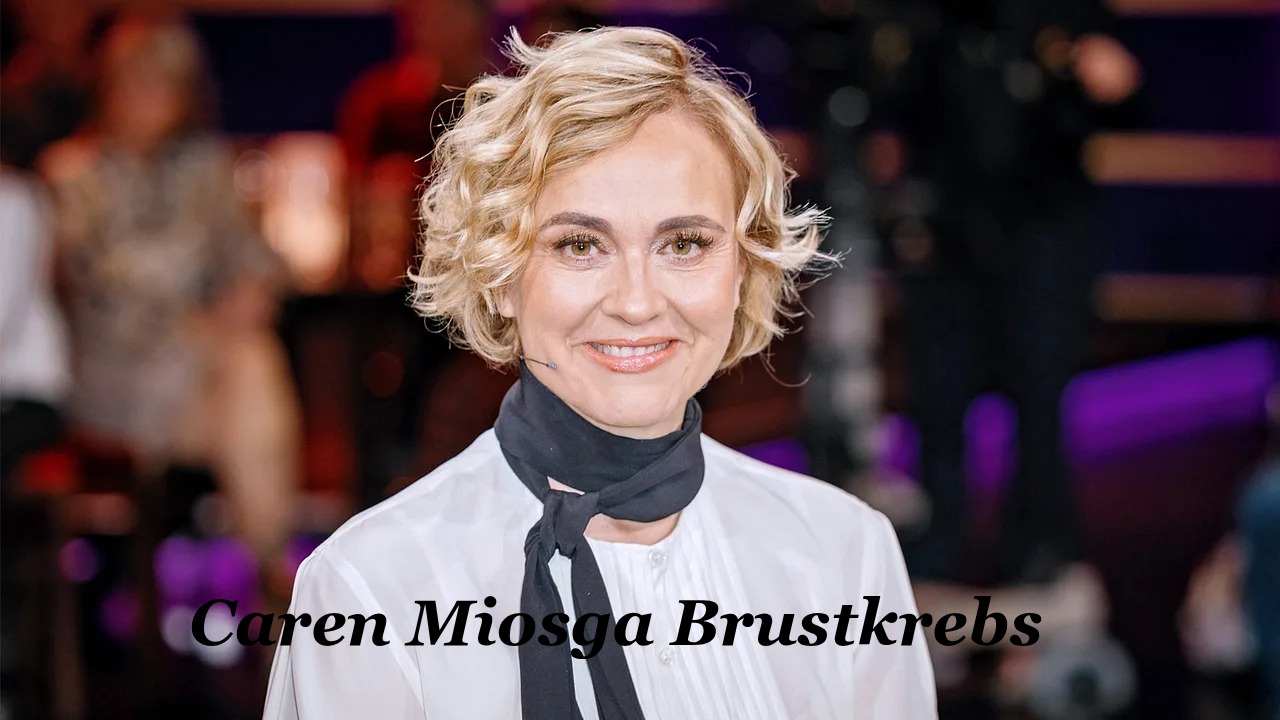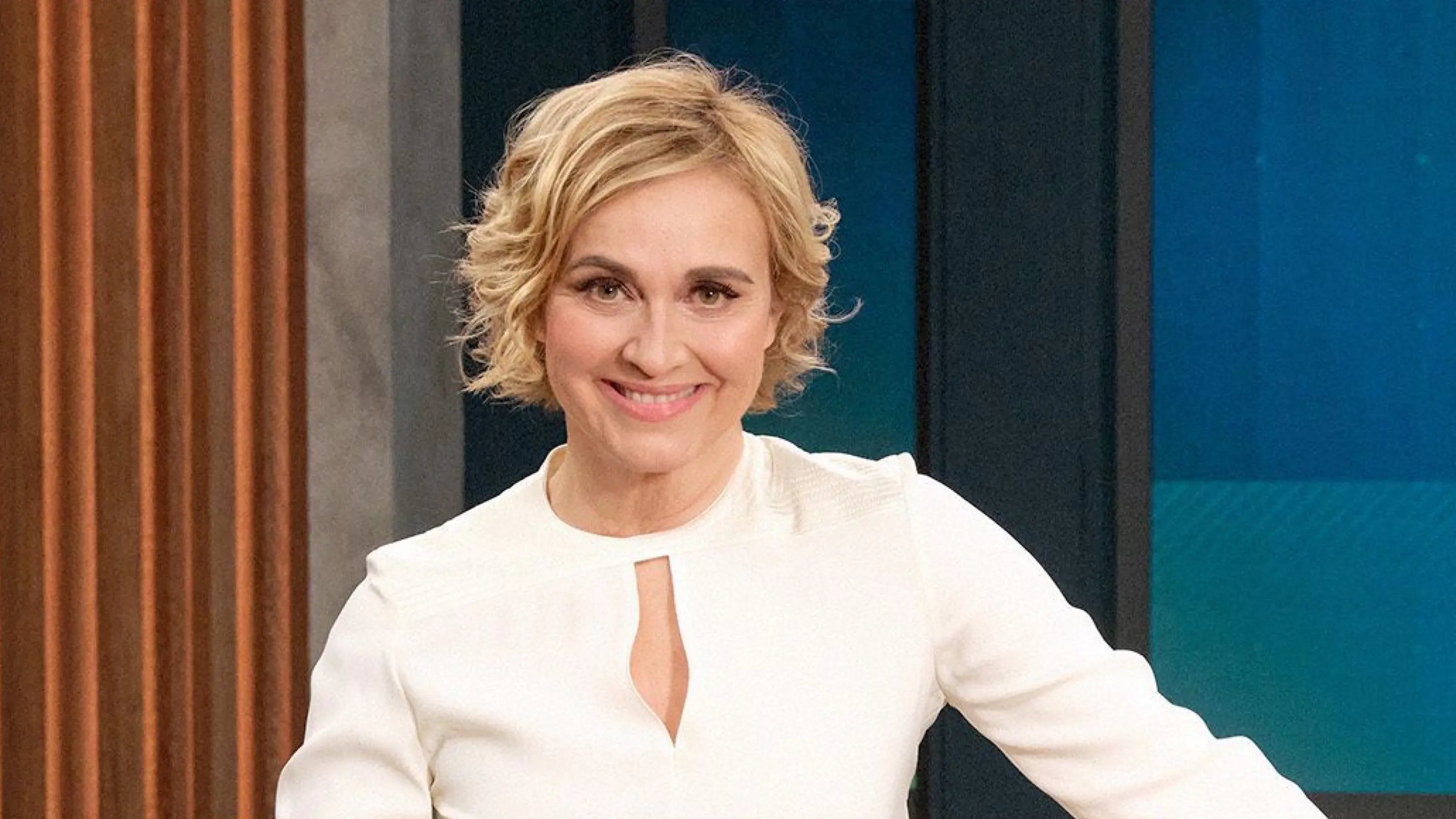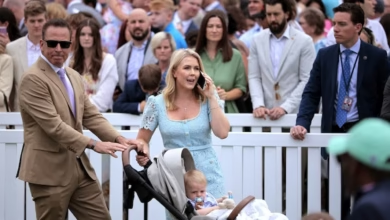Caren Miosga Brustkrebs and the Conversation About Breast Cancer: Awareness, Resilience, and Public Dialogue

Introduction: Why Caren Miosga’s Name is Linked to Breast Cancer
Caren Miosga Brustkrebs, one of Germany’s most respected television journalists, is widely recognized for her calm presence and sharp intellect as the long-time host of Tagesthemen. Over the years, she has gained a reputation as a professional who balances empathy with hard-hitting reporting. However, in recent years, her name has also been mentioned in the context of breast cancer—a subject that resonates deeply with millions of women worldwide.
While there is no official confirmation that Caren Miosga Brustkrebs herself has battled breast cancer, her name is often associated with this disease due to her openness in addressing difficult health-related topics and her commitment to shedding light on issues that affect women on both a personal and societal level. Whether or not she has personally faced this illness, the conversation around her and breast cancer has sparked a broader awareness about early detection, emotional resilience, and the importance of public dialogue.
When celebrities or public figures are linked to health challenges such as breast cancer, it often opens doors for people to talk about something that may otherwise remain hidden or stigmatized. Caren Miosga Brustkrebs presence in this discussion provides an opportunity to explore not only the medical aspects of breast cancer but also the emotional, cultural, and social dimensions that surround it.
Understanding Breast Cancer Beyond the Headlines

Breast cancer is one of the most common cancers among women globally, and it remains a topic of both medical urgency and social sensitivity. Despite medical advancements, many still feel hesitant to discuss it openly, often because of fear, stigma, or lack of knowledge. This is where public figures like Caren Miosga Brustkrebs play a significant role—by being part of the conversation, they help normalize it.
To understand why the association of Caren Miosga Brustkrebs name with breast cancer has such impact, it’s important to first recognize the weight of the disease itself. Breast cancer is not only a medical condition; it is a life-changing journey. It affects physical health, mental well-being, body image, and family dynamics. The ripple effect can touch spouses, children, friends, and entire communities.
The good news, however, is that early detection and improved treatments have significantly increased survival rates in recent decades. Mammography, self-examination, and awareness campaigns are now more accessible than ever. Still, these tools only work if people use them. That is why conversations that bring breast cancer into the mainstream—like those connected to Caren Miosga Brustkrebs—are invaluable. They remind us that awareness saves lives.
Caren Miosga’s Influence as a Public Figure
Caren Miosga Brustkrebs is not just a journalist; she is a trusted voice in German media. Over her career, she has conducted interviews with world leaders, moderated debates during political crises, and provided clarity in moments of national uncertainty. Her credibility and relatability make her an influential figure whose words resonate with audiences.
When someone like Miosga engages with a topic as sensitive as breast cancer, it carries a unique weight. Unlike medical professionals who often speak in technical terms, journalists bring a human face to complex issues. They have the ability to break down medical jargon into relatable stories that connect with everyday people. In Miosga’s case, her empathetic communication style allows audiences to feel both informed and comforted.
Moreover, Caren Miosga Brustkrebs influence extends beyond her professional platform. She represents a strong, independent, and successful woman who embodies the values of resilience and determination. For women facing breast cancer, seeing someone like her associated with the conversation can be incredibly empowering. It signals that vulnerability does not diminish strength—it enhances it.
The Role of Awareness Campaigns and Media
Breast cancer awareness campaigns have evolved significantly in recent years. What used to be limited to medical brochures and hospital pamphlets has now become a global movement characterized by pink ribbons, charity runs, and large-scale public events. Yet, media remains the most powerful driver of awareness.
When journalists like Caren Miosga Brustkrebs engage with breast cancer topics, they amplify these campaigns by bringing them into homes across the nation. Television, online platforms, and even social media posts serve as reminders that early detection is vital and that no one should feel ashamed to talk about their health.
This media-driven awareness has had measurable effects. Studies show that campaigns involving respected public figures result in higher participation in screenings and donations for cancer research. In other words, when Caren Miosga Brustkrebs or others in her position talk about breast cancer, people listen—and more importantly, they act.
The Emotional Side of Breast Cancer
Beyond the medical facts, breast cancer carries a profound emotional impact. Women often describe the diagnosis as a sudden shift in identity—from being healthy and in control to feeling vulnerable and uncertain. The physical changes caused by treatment, such as hair loss or mastectomy, add another layer of difficulty, often affecting self-esteem and relationships.
Here again, the presence of a trusted journalist like Caren Miosga Brustkrebs in this conversation can help. By addressing breast cancer with empathy and openness, she acknowledges the emotional challenges without minimizing them. This validation is important because it shows patients and their families that their feelings are legitimate and shared by many others.
The emotional resilience required to navigate breast cancer is immense, but stories of hope and survival—especially when shared in the media—can provide a lifeline. When people hear that they are not alone in their struggles, it gives them strength to keep going. Public figures contribute to this resilience by breaking silence and stigma, reminding society that vulnerability is not weakness.
The Importance of Early Detection and Regular Check-Ups
If there is one clear message to take away from discussions around breast cancer, it is the importance of early detection. Medical experts consistently emphasize that the earlier breast cancer is found, the higher the chances of successful treatment.
Public conversations sparked by figures like Caren Miosga often lead women to ask themselves practical questions: When was the last time I did a self-exam? Have I scheduled my mammogram? Am I paying attention to changes in my body? These questions may seem simple, but they can make the difference between life and death.
Raising awareness is not just about encouraging individuals; it is also about pushing for systemic change. More funding for screenings, better access to treatment, and increased support services are all critical to reducing the burden of breast cancer. Journalists and public figures who highlight these needs can play a pivotal role in shaping health policy.
Caren Miosga as a Symbol of Strength and Dialogue
Even if Caren Miosga Brustkrebs herself has not been publicly confirmed as a breast cancer patient, her association with the subject reflects her role as a facilitator of dialogue. She symbolizes the courage it takes to confront difficult issues head-on and the responsibility of using one’s platform to help others.
Her name connected with “Brustkrebs” reminds us that awareness is not only about numbers and survival rates but also about the human stories behind them. It’s about giving women the confidence to seek help, the reassurance that they are not alone, and the belief that breast cancer is not the end of their story.
Caren Miosga Brustkrebs represents a blend of professionalism and humanity that makes her an effective voice in this dialogue. She shows that discussing illness in public does not weaken one’s image but instead enhances credibility by showing authenticity.
Conclusion: The Lasting Impact of Talking About Breast Cancer
The association of Caren Miosga Brustkrebs with breast cancer has opened a wider door to conversations that matter deeply. Whether through her journalism, her influence, or simply her presence in public discussions, she has contributed to a movement that emphasizes awareness, empathy, and resilience.
Breast cancer is not just a medical issue; it is a human experience. By bringing it into the spotlight, figures like Miosga help normalize conversations that save lives. They remind us that awareness is a form of empowerment, early detection is a form of prevention, and dialogue is a form of healing.
At the end of the day, the link between Caren Miosga and breast cancer serves as a reminder: public conversations about health are not just stories—they are lifelines. And every time someone like her speaks up, another woman somewhere finds the courage to check, to ask, and to fight.



